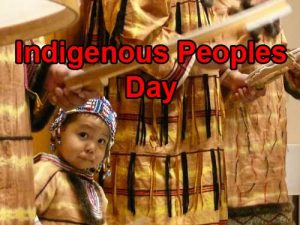
Monday is Columbus Day in the United States. It is also a day that many people now celebrate as Indigenous Peoples Day.
Columbus Day has been a federal holiday since 1937, in honor of Christopher Columbus’ so-called discovery of America.
Many people, especially Native Americans, have taken offense at the notion that Columbus discovered the Americas when there were already established and thriving peoples and civilizations on the North and South American continents.
Columbus Day is not just a holiday,” says Leo Killsback a professor of American Indian Studies at Arizona State University, “it represents the violent history of colonization in the Western Hemisphere” which includes slavery and the forced Christianity conversions of native peoples.
Indigenous Peoples Day is not yet a federal holiday, but President Joe Biden’s administration has officially recognized the day since 2021. Some U.S. states already recognize Indigenous Peoples Day instead of Columbus Day, while others continue to celebrate Columbus.
There is a push to have the second Monday in October renamed as the federal holiday Indigenous Peoples Day instead of Columbus Day. An act was reintroduced into Congress last week with that goal.
Some scholars believe that an Indigenous Peoples Day provides for a more realistic view of Native Americans and white settlers treatment of them.
Source: VOA
